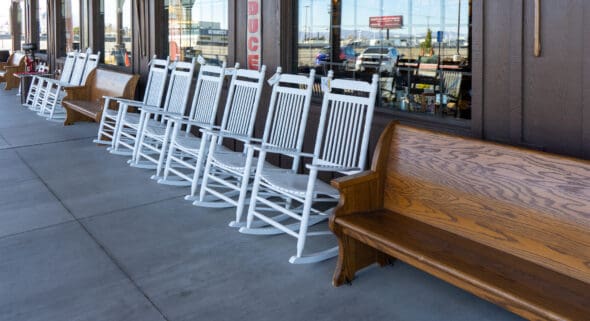How Public Lands and Outdoor Issues Won in 2020
Over the past several election cycles, the Center for Western Priorities’ Winning the West project has tracked and analyzed political campaigns in the Mountain West to demonstrate how public land conservation is a winning campaign issue. That has never been more true than in the 2020 election cycle.

Over the past several election cycles, the Center for Western Priorities’ Winning the West project has tracked and analyzed political campaigns in the Mountain West to demonstrate how public land conservation is a winning campaign issue. That has never been more true than in the 2020 election cycle.
Due to a growing bipartisan outdoor voting bloc—now estimated to be 2 million voters strong—who vote to keep the West’s public lands protected and accessible and a heightened connection to the outdoors amid COVID-19, public lands issues played an outsized role in close Mountain West races in the 2020 election cycle, more so than in previous election cycles we analyzed.
Of the 21 races we tracked throughout this election, 19 featured significant pro-public lands advertising or messaging. The extent to which it was used as a key differentiator in campaigns was unprecedented.
In debates, op-eds, and other campaign communications, candidates frequently appealed to their voters through public lands—speaking to how they are managed, their importance to local economies, and the way they define life in the West. Campaigns used the mountains and outdoor spaces of the Mountain West as backdrops for numerous campaign ads and pro-public lands messages on social media. Candidates in the West campaigning on public lands issues also became part of a national media narrative. Further, extreme anti-public lands positions, such as selling off national public lands to private interests or turning them over to state control, were notably absent in competitive races and winning candidates regularly and explicitly rejected the Trump administration’s extractive-industry friendly public lands agenda.
There may be no better example of the decisive role outdoor issues play in elections in the West than incumbent Senator Martha McSally and Mark Kelly’s campaigns to represent Arizona in the U.S. Senate. Positioning himself as a centrist, Kelly framed climate change as a threat to Arizona’s economy and advocated for investment in renewable energy and the creation of green jobs. Kelly also harshly criticized Trump’s Bureau of Land Management nominee, William Perry Pendley, writing in a public statement that the nomination is “clearly a threat to the goal of protecting Arizona’s public lands and keeping them accessible for everyone.”
Martha McSally also spoke to outdoor issues throughout her campaign, but her campaign message did not match her record in office which included several anti-public lands votes. Ultimately Arizona voters picked the candidate with the stronger pro-conservation positions on public lands and outdoor issues.
In Colorado, one of the most closely watched races in the nation—the U.S. Senate race between former Governor John Hickenlooper and incumbent Senator Cory Gardner—regularly highlighted the importance of public lands and outdoor issues. Hickenlooper won the race in part by touting his record as governor addressing climate change, which included setting the state on a path toward 100% renewable energy and curbing methane emissions. He also campaigned on a “Conservation” Agenda that opposed selling off federal lands and prioritized the passage of the CORE Act to protect 400,000 acres of Colorado public lands. Incumbent Senator Cory Gardner tried to counter by showing his outdoor side, including releasing a video ad called “Get Outside” that showed him and his family getting ready for a day of recreating on public lands in order to call attention to his co-sponsorship of the recently passed Great American Outdoors Act. When it came time to vote, Coloradans believed Hickenlooper to be the most sincere public lands champion and elected him by a wide margin for what was expected to be a close race.
In New Mexico’s first district, Representative Deb Haaland secured a second term in Congress in a race against Republican candidate Michelle Garcia Holmes and then made history as President-elect Joe Biden’s nominee to head the Department of the Interior. With a deep understanding that public lands in the U.S. are lands that Native people have inhabited or used for material and spiritual purposes, Haaland made outdoor issues a central pillar in her platform and campaign.
Haaland introduced the 30×30 Resolution to Save Nature in the House to set a goal for the United States to conserve at least 30 percent of the nation’s water and land by 2030. She also introduced The Environmental Justice in Recreation Permitting Act as well as the Simplifying Outdoor Access for Recreation (SOAR) Act, both of which aim to increase access to public lands. Haaland campaigned on her support for the Natural Resources Management Act, also known as the Public Lands Package, and introduced the Antiquities Act of 2019 which has a goal of fighting climate change by protecting land from extraction, honoring sacred sites, and ensuring public lands are protected for future generations.
Haaland’s opponent failed to recognize the passion voters in the district have for outdoor issues and conservation and did not prioritize outdoor issues in the campaign. Haaland handily won reelection in a race expected to be closer than it turned out.
These are just a few of the many candidates who boldly championed public lands issues in their campaigns in order to appeal to the region’s powerful bloc of outdoor voters.
As newly elected officials step into office, voters will be looking for campaign messages to be translated into legislative action on public lands. Outdoor voters are eager to see a proactive agenda to expand and protect national public lands, namely around access, oil and gas leasing, and the impacts of climate change on outdoor recreation.
Learn more about the unignorable trend of candidates highlighting support for public lands and outdoor issues in 2020 at WinningTheWest2020.org.
The Center for Western Priorities is available to provide briefings on trends in the 2020 election, the importance of a pro-public lands message to winning Western votes, and the outdoor voting bloc.
Jennifer Rokala is the Executive Director of the Center for Western Priorities. Prior to joining CWP, Jen served as the State Director for U.S. Senator Mark Udall of Colorado. Jen grew up in Colorado and is a graduate of the University of Colorado, Boulder. As a native of the West, Jen has always been passionate about protecting our public lands. Her favorite national park in Colorado is the Great Sand Dunes National Park & Preserve.




